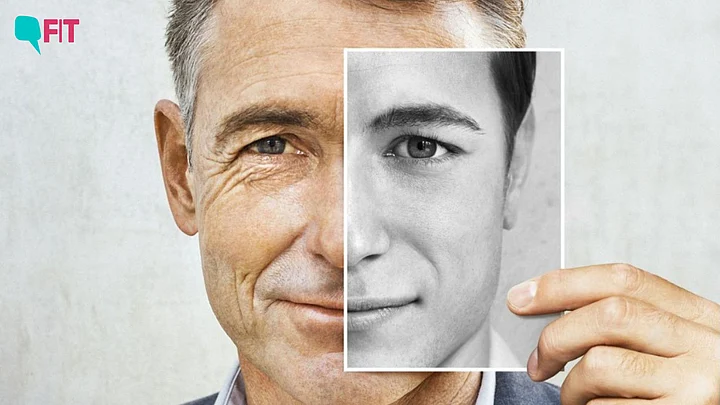How old are you? – The question, in the future, may have a more complex answer than we’re used to.
Earlier this year, a 63-year-old biotech entrepreneur and ‘longevity expert’ in the US, Dr Mark Hyman announced that his biological age is really 43.
In another instance, another biotech entrepreneur, 45-year-old Bryan Johnson, says he has the heart of a 37-year-old, and the skin of a 28-year-old. Furthermore, he's undertaken data-driven experimentation to eventually achieve the organs and health of an 18-year-old.
What exactly are they doing? Is it possible to reverse your biological age?
What Is Biological Age?
Simply put, biological age is the rate at which you are physically ageing, as opposed to chronological age which is the number of years it's been since you were born. Essentially, it quantifies the health of your organs.
Some scientists have even developed tests and trackers to help determine how much your organs have aged (how healthy they are) as compared to your chronological age. However, there is still quite a bit of scepticism that surrounds these tests.
Reversing Your Biological Age
The process of physical ageing begins from the moment you are born. In fact, even the most fundamental acts of breathing oxygen, or digesting food contribute to ageing.
However, there are external factors like the quality of air you breathe, the kind of food you eat, etc that can accelerate or even slow down the process.
The point of reversing biological age is not to stop ageing or live longer, but to keep up youthful health for a longer time. Which is why Dr Hyman calls it increasing your 'health span', and not your 'life span'.
In order to slow down this natural process, people like Dr Hayman have undertaken experiments to make a case for strict and consistent lifestyle changes being able to ‘slow the process’ of ageing. There is also some evidence to support this correlation.
Some researchers have taken it a step further to look at the possibility of altering biological age by manipulating DNA.
In a groundbreaking study published in January, Dr David Sinclair, a professor of genetics at Harvard Medical School proposes an ‘ageing clock’ of sorts that can be found in our DNA. The study also shows they were able to accelerate and even reverse ageing in mice with gene therapy.
However, the very concept that one has a specific biological age is still controversial.
For one, it is difficult to say what a 'normal' cells should look like at any given age.
Some have also argued that 'reversing the biological clock' is just a bells-and-whistles way of saying 'ageing well', or being healthy for your age.
What Does It Take?
All the processes for 'biological clock reversal' that we know of are still in the experimental stage, so it's difficult to say which ones really work just yet.
Dr Hyman does this by following a strict ‘clean’ lifestyle of diet, exercise, sleep and stress management.
Along with lifestyle management, Bryan Johnson on the other hand, also consumes a cocktail of medicines and supplements including lycopene; turmeric, zinc, metformin to prevent bowel polyps, he told Bloomberg. On this list is also a small daily dose of lithium.
Before you run to get your hands on some nutritional lithium, know that there is little evidence to prove Lithium actually helps in rejuvenating cells. Moreover, it can be very toxic if consumed in high doses.
Johnson’s experimental lifestyle is being carried out under a strict supervision of an expert in the field.
Scientist in labs are also busy looking for answers in our cells. While there have been some sporadic studies that have shown successful 'cell rejuvenation in mice like in the case of the Harvard study, we don't have anything concrete yet when it comes to human ageing.
But, science is progressing fast. Researchers have already been able to develop tools to help predict pattern of ageing, and onset of age-related degenerative disorders like dementia through blood tests and machine learning techniques.
And at the rate it's going, it is quite possible that in the future the phrase 'age is just a number' may ring truer than we know it to today.
(Written with inputs from Bloomberg and Insider.)

